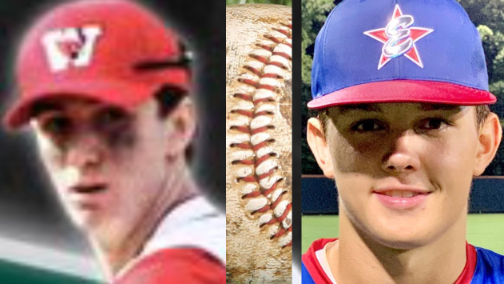
PASCACK VALLEY—Charlie Saul, a senior baseball player at Pascack Valley High School, will graduate high school later this month alongside the rest of his classmates. Afterward, most of his peers will move on and pursue their own endeavors outside of PV.
This won’t be the case for Saul, a 2022 All-Bergen County first-team selection, who has one additional season to stick around and patrol center field for the Panthers.
And it won’t be true either for Connor Roche, a senior infielder at Westwood Regional High School, who recently committed to Wagner College to play baseball but feels he could benefit from waiting until 2023 before making his debut for the Seahawks.
“I’m really excited for next year,” Saul told Pascack Press on June 2. “I’m hoping that everyone is going to grow, so I think it could be special.”
Saul is going to be participating in an extra season of baseball at PV as a result of new legislation signed by Gov. Phil Murphy. The law, P.L. 2020, c. 41, requires districts across the state to follow the Bridge Year Pilot Program for school-related clubs and spring sports.
According to New Jersey’s website, the bridge year program is meant to “provide students in the graduating classes of 2021 and 2022 with the opportunity to offset disruptions to learning opportunities and participation in extracurricular activities that might have resulted from the closure of schools to in-person instruction in spring 2020 due to the COVID-19 pandemic.”
Students who sign up are allowed to take classes at a New Jersey community college and receive up to 24 academic credits over the course of one year, while they also get to remain involved in activities at the high school level.
Participants must meet certain standards, such as maintaining a 2.0 grade point average during the entire bridge year. All public institutions of higher education within the state are required to accept the earned credits.
The program allows all spring athletes to continue their high school careers for an additional season and have four years of future collegiate eligibility. Fall and winter athletes cannot take a bridge year because sports in those seasons were not canceled in 2020 due to the pandemic.
Saul, from River Vale, will study kinesiology at Bergen Community College for two semesters then transfer his credits to a different school once he makes a decision on where he will be playing collegiate baseball starting in the spring of 2023.
During his final season at Pascack Valley he hopes to impress Division I coaches off the field with his grades and character traits, but also on the diamond with an improved arm in the outfield and added consistency at the plate.
“I looked at the bridge year as a way to get my missed season back and hopefully get recruited and develop in the classroom and on the field,” he said. “I’ll have credits that I’ll transfer to college and I’ll be able to progress mentally and physically. So I just thought it was a good decision for me and my parents agreed.”
A few institutions have been in touch with Saul already, and he plans to commit to a school at some point prior to the end of next season. At this point, he considers George Mason University in Virginia to be his top choice.
“I haven’t been there but I’ve done virtual tours and it looks like a really cool environment and a beautiful campus,” he said. “They also have my major and it’s a very good baseball program.”
Not every student taking part in the bridge year program is still undecided in terms of where they will be attending college after their high school career officially ends.
Roche told Pascack Press, “I’m a skinny guy playing at shortstop,” Roche said. “I just need more power and more explosiveness. I’m going to have to get stronger to be better in baseball and expand my work in the weightroom.”
Roche said that he didn’t do many baseball-related activities during the early months of the pandemic, and regrets not working harder during that period on his skills and fitness. He plans to make up for that time during his final season playing for Westwood, while simultaneously taking business classes for a year at BCC.
His work with the Cardinals, in addition to his ongoing sessions at the RPP Baseball training facility in Paramus, should help Roche mature and be ready for Wagner’s Division I athletic standards the following academic year.
“It’s better to take this extra year and then be a freshman at Wagner when I’m older and more mentally tough,” he said. “I’d rather be ready when I arrive at a good school and then make my way up.”
Both players said they feel that taking the bridge year is the best choice for them as they forge their own paths in baseball and attempt to succeed at a higher level of the sport. Each expects to have the skills they need to thrive once they’re in college, but for now, the mindset is on taking advantage of the opportunities directly in front of them as they finish high school.
“I cannot wait for next year to just be around all the guys again,” Saul said. “I’m really close with some of the younger kids on the PV team, so it’s going to be really fun.”
